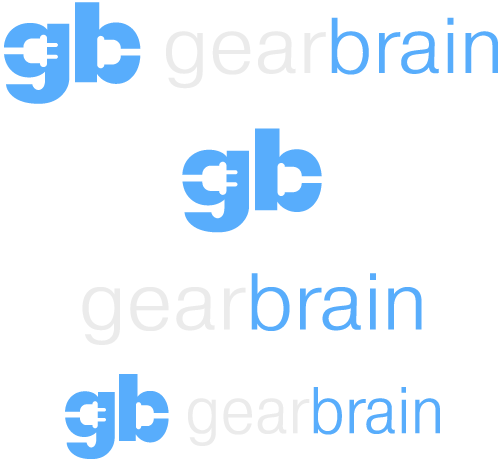Content marketing tells stories, builds brands and drives all layers of the acquisition funnel. It's the fastest-growing segment of the advertising industry, and it is here to say. There's a reason why Bill Gates and Barry Diller said "content is king." Stories matter. Stories engage and give full information about what motivated a company to produce a product of any kind - and why a prospective customer should take a chance on a new brand or an established brand that is playing to its strengths.
Nobody knows this better than the folks at GeistM - the fastest-growing MarTech platform in the world, a platform that reaches over 95% of the world's wired population and acts as an extension of the marketing teams of its partners.
GearBrain recently sat down with Andrew Smith, SVP of Strategic Partnerships to discuss what's happening today in the content marketing world and GeistM's distinctive and dominant approach to content marketing which has led them to be the first MarTech platform to be named Inc. 5000 for the 3rd consecutive year.
GearBrain Teaser - See Why GeistM Does Content Marketing Rightwww.youtube.com
What is the future of the agency model?
My feeling is that Agencies aren't going to go away anytime in the near future. I know a lot of people have predicted the death of the agency model, that it is crumbling before our eyes but those predictions have been made so many times in the past, and it never seems to happen. I think the direction they're moving in is that they're basically these big relationship aggregators, and they give their clients--typically larger brands who have a lot of spend and are in a position where they have to defend market share--they give those players a sense of security. They exist in order to mitigate risk.
But the model has to evolve. They're going to have to outsource certain functions, like optimized content marketing, to people who are 100% focused on it. And their pricing is completely out of whack with reality. Black hole spend, inefficient spend, and things that make it impossible to scale profitably using a traditional agency.
Why are big brands losing market share to upstarts?
90-95% of the top CPG brands are losing market share. Now, that's amazing when you think about the amount of ad spend that those brands are deploying just to defend themselves and they're *still* losing ground. It says something about what's happening in the marketplace.
From our perspective, it is all about the democratization and proliferation of new media, which has made this inevitable. You can't "buy out all the inventory" and choke off the competition anymore. Customers--people--are breaking down into tribes, and tribal loyalty trumps brand loyalty. People want to have relationships with brands that are aligned with their values and that give them a sense of discovery. In the early days of brand building, it was all about uniformity, conformity, and scale. Whereas today, it is more about connecting with people based on their individual tastes, values, interests, and identity.
So what is GeistM doing that is different from everyone else in the marketplace?
I think it really comes down to the fact that performance is built into our DNA. We're selective about the kind of clients we take on. Our model only really works if we can rapidly scale spend while maintaining our clients' ROI. And that means our partnerships have to last, they have to be enduring. Some of our clients have been with us for 7 years, literally since the beginning of the company. Our average client has been with us for about 3 years. And because everything we do is so transparent with our data, there is no mystification of bullshit in our client communications.
Who is really killing it out there with performance marketing campaigns?
For us, we have what I would call "superheroes" in terms of content marketing. Our biggest clients--in categories like weight loss, online gaming, and meal delivery--have incredibly sophisticated data analysis that allows them to deeply understand their customers.
And then there's a layer below that of companies that are using content marketing for what I would call "performance branding". And that's where you have these great accountability and tracking measures in place, but what you're doing with it is building emotional connections with people. Some of the ones who do a great job on that are, like, Dr. Squatch. I don't know if you've seen their content, but it's really good, really funny. They're a men's soap and beauty products company. But they've developed a truly unique voice, and it's working for them. And then on the total other end of the spectrum, one of our other clients, 21 Seeds, is a woman-owned tequila brand. They have managed to acquire all these celebrity influencers who are working for them basically for free because they love the product so much! And that's part of what's driving this--these small companies that have to go out and fight against the big goliaths, they don't have the luxury of massive ad budgets. They can't go out and strong arm retailers and distributors. They have one shot, and they have to get it right in terms of qu ality of the product, the promises they're making, and the voice that they're using.
What verticals make the most sense for this approach?
It's not really about the vertical. We have weight loss clients with mainly female audience that skews a bit older--and on the other end of the spectrum, we've got gaming clients with a predominantly young male audience. It's more about "do you have a good handle on your data?" You have to understand attribution analytics, lifetime value calculation, ROAS, etc. Otherwise, you're not going to be able to measure the impact.
The other thing is, have a really good product that you believe in and a willingness to express a unique voice about that product.
Why are there so many crappy companies in the MarTech space?
Yeah. You've identified the biggest day-to-day challenge that I have, which is, if we're able to get a meeting with a client, we close 80-90% of those deals. Which is amazing. But it's hard to get the meeting. And that's because there is so much noise in the marketplace.
Crassly, I call it the "shitball factor." There are a lot of shitball companies out there in this space. And I'm not sure that the % of shitballs in Martech is higher than other industries, but for sure our category as a whole does suffer from a perception problem. Part of it is there have been players out there who haven't been able to deliver on their promises to clients. Their technology hasn't been able to live up to the hype. So we made a calculated decision from the beginning to invest heavily in our tech and make sure that if we say we can do something, we damn well better be able to follow through on it. And that's reflected in everything we do. Our contracts are written such that, if we're not performing, the client can walk away, which would be a disaster for us because we invest so heavily upfront.
Now, I'll say this in defense of the industry. There *is* a lot of complexity in this. The models are still evolving and being built, and sometimes in attempting to simplify that complexity for prospects, some of the messaging can get a little sloppy.
What networks are emerging as "the next great acquisition platform?"
That's a great question. We're seeing tremendous growth with Instagram, particularly in terms of top of funnel metrics. It's a really interesting audience, but it's different. And that's kind of hte point. You can't treat every network the same because they all have different audiences, different algorithms, and different uses. We have had tremendous success with the Native Networks--Taboola, Outbrain, Verizon, and now Google. They are consistently strong performers for our clients. That's surprising to some people because we often have clients who come to us saying, "well, we tried Native before and it didn't work." Well, what were you *doing* specifically that didn't work? What was the strategy? Were you really using that platform the way it is meant to be used.
Overall, what we've found is that the model works best when there is diversification of the messaging. The key is to understand how to USE these various networks in concert towards the bottom-line objective of profitable growth. The beauty in what we do is that we are platform-agnostic. We eliminate the risk of a single point of failure based on network performance.
What is the future of performance marketing?
I think the question is really, "what is the future of marketing?" and the answer is "performance." In this media environment, with the tools that are now available, there is just no reason, no excuse not to be focused on measurable performance. I can't understand why anyone wouldn't take advantage of those tools, even if your goal is just protecting a big incumbent brand.
What is your model? When people think of Geist, what should they think of?
I think we need to be synonymous with performance. Period and end of story. Working with Geist means that you're not only going to acquire customers profitably, you're going to acquire the most profitable customers, the ones who deliver strong lifetime value.

